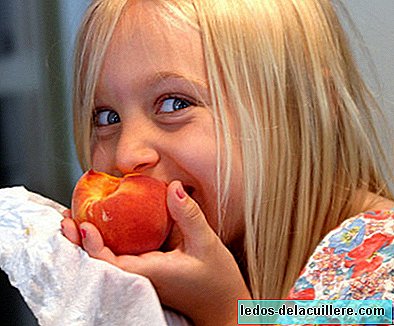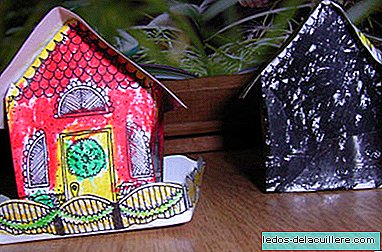
The basis of a good diet should be laid since the children are young and start eating with the family. We try to give them the best and that their habits are as healthy as possible, and for this we bring these Ten tips for proper children's nutrition.
It is a decalogue prepared by the European Food Information Council (EUFIC), a non-profit organization that provides scientific information on food and other topics related to nutrition to the media, health professionals and nutrition, the educational authorities and the general public.
What can we procure for our children to maintain a healthy and balanced diet as part of healthy habits that keep them fit?
The tips are aimed at children from three years and teenagers, and they list them in a colloquial way, appealing to the children themselves.
- Enjoy the food. Try to eat different foods every day to enjoy a varied diet and enjoy it. Eat with your family and friends.
- Breakfast is a very important meal. Your body needs energy after sleeping, so breakfast is essential. Choose foods rich in carbohydrates for breakfast, such as bread, cereals and fruit. Skipping meals, and especially breakfast, can cause uncontrolled hunger, which often leads to overeating. If you do not eat anything for breakfast, you will be less concentrated in school.
- Eat a lot of varied foods. Eating a variety of foods every day is the best recipe for good health. You need 40 different vitamins and minerals to stay healthy, and there is no food that alone can provide them all. There are no "good" or "bad" foods, so you don't have to stop eating the things you like. Just make sure you get a proper balance and eat a wide variety of foods. Make balanced decisions every moment!
- Base your diet on carbohydrates. These foods provide the energy, vitamins and minerals you need. Some carbohydrate-rich foods are pasta, bread, cereals, fruits and vegetables. Try to include any of these foods in each meal since more than half of the calories in your diet should come from them.

- Eat fruits and vegetables at each meal. You can enjoy fruits and vegetables at meals, or consume them as tasty snacks between meals. These foods provide vitamins, minerals and fiber. You should try to consume 5 servings of fruits and vegetables a day.
- Fat We all need to include some fat in our diet to maintain good health, but consuming too much fat, and in particular saturated fat, can be bad for our health. Saturated fats are found in whole dairy products, cakes, buns, fatty meats and sausages. Eat in a balanced way - if you eat foods high in fat at mealtime, try to eat foods with less fat at dinner.
- The snacks. Chopping between meals provides energy and nutrients. Choose assorted snacks, such as fruits, sandwiches, cookies, pies, chips, nuts and chocolate. Make sure your choices are varied to maintain balance in your diet, and do not eat too much, but you will not be hungry at mealtime
- Quench thirst You have to drink a lot of fluids because 50% of your body is made up of water. You need at least six glasses of fluids a day, and even more if it is very hot or you exercise. Water and milk are excellent, but it is also fun to vary.
- Take care of your teeth. Take care of your teeth and wash them twice a day. Foods rich in starch or sugars can influence the appearance of cavities if they are eaten too often, so do not peck or drink soda at all times.
- Get moving. Being fit is important for a healthy heart and strong bones, so exercise. Try to do some sport every day and make sure you like it so that you are constant and don't stop doing it. If you take too many calories and do not get enough exercise you can gain weight. Moderate physical exercise will help you burn the calories you have left over. You don't have to be an athlete to get going!
As we see, in the Decalogue for healthy infant feeding It not only refers to meals but also includes other related recommendations, referring to oral hygiene and the practice of physical exercise. By putting all these points into practice, we will help our children grow up healthy.












